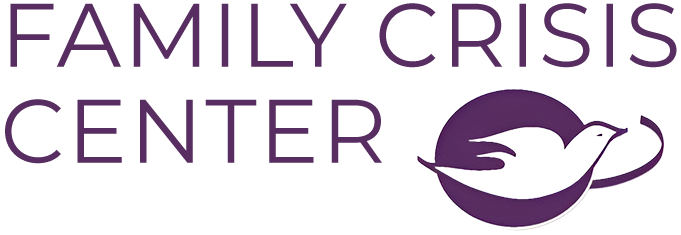• family crisis center •
Domestic Violence Awareness and Support
Understanding Abuse Beyond Conflict
Forms of Domestic Violence?
Domestic violence also known as Intimate Partner Violence (IPV) does not always involve physical abuse, although it may. It can present itself in various forms including:
Physical
Hitting, slapping, shoving, grabbing, pinching, biting, hair pulling, etc. are types of physical abuse. This type of abuse also includes denying a partner medical care or forcing alcohol and/or drug use upon him or her.
Sexual
This looks like coercing or attempting to coerce any sexual contact or behavior without consent. Sexual abuse includes, but is not limited to: marital rape, attacks on sexual parts of the body, forcing sex after physical violence has occurred, or treating one in a sexually demeaning manner.
Emotional
Undermining an individual's sense of self-worth and/or self-esteem is abusive. This may include, but is not limited to constant criticism, diminishing one's abilities, name-calling, or damaging one's relationship with his or her children.
Mental
Elements of mental abuse include - and are not limited to - causing fear through intimidation; threatening physical harm to self, partner, children, or partner's family or friends; destruction of pets and property; and forcing isolation from family, friends, or school and/or work.
Technological
Actions or patterns of behavior that is intended to harm, threaten, control, stalk, harass, impersonate, exploit, extort, or monitor another person that occurs using any form of technology, including but not limited to: internet enabled devices, online spaces/ platforms (social media), computers, mobile devices, cameras and imaging programs, apps, location tracking devices, or communication technologies.
Financial
Although commonly used in IPV, many may not recognize how and when economic abuse is happening. Financial abuse happens when someone controls or limits another person’s ability to access, use, or manage their own money or financial resources. This can involve manipulation, threats, or dishonesty to take control of someone’s income, property, credit, or financial accounts. It may also include using a person’s money or credit without permission, pressuring them into bad financial decisions, or misusing legal authority like power of attorney to benefit oneself instead of acting in that person’s best interest
Could This Be Abuse?
If you're wondering whether what you're experiencing might be abuse, ask yourself:
- Do I feel afraid of my partner's temper or reactions?
- Does my partner control my money, choices, or freedom to come and go?
- Do I feel like I'm walking on eggshells to avoid conflict?
- Am I often blamed, criticized, or made to feel small.
- Have I been isolated friends, family, or support?
If you answered yes to any of these, you are not alone. You deserve to feel safe, respected, and free from fear. We're here to listen confidentially, without judgment.
The Impact on Survivors
Survivors of IPV will often convince themselves this behavior is normal for months or years before acknowledging there is a problem.
Please don't wait - help is available.
Key Statistics
About 1 in 3 women and 1 in 4 men experienced contact sexual violence, physical violence, or stalking by an intimate partner during their lifetime and reported a related impact. (cdc.gov)
Over 61 million women and 53 million men have experienced psychological aggression by an intimate partner in their lifetime. (cdc.gov)
The Long-Term Consequences of IPV
IPV can start as early as the teenage years, and for many, it marks the beginning of a lifetime of abusive relationships. Survivors often experience:
- Physical health outcomes, such as conditions affecting the heart, muscles, bones, digestive, reproductive, and nervous systems. Many of these conditions are chronic.
- Mental health challenges including depression and post-traumatic stress disorder (PTSD) symptoms.
- Higher risk behaviors such as smoking, binge drinking, and engaging in risky sexual activity.



